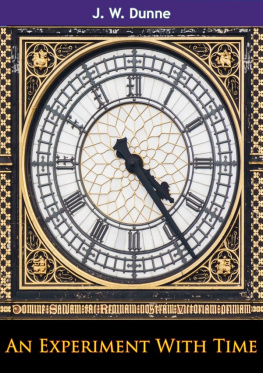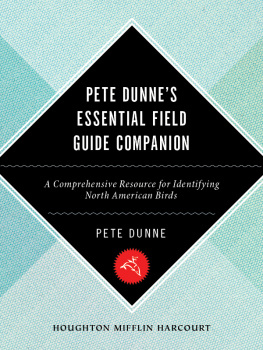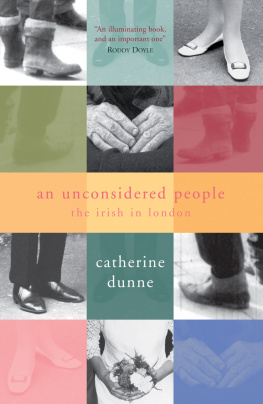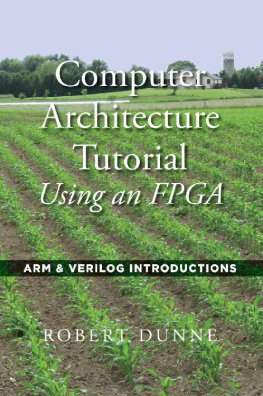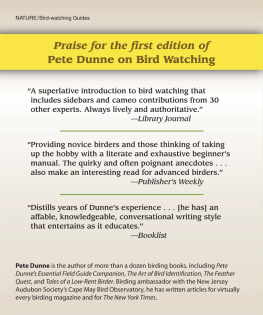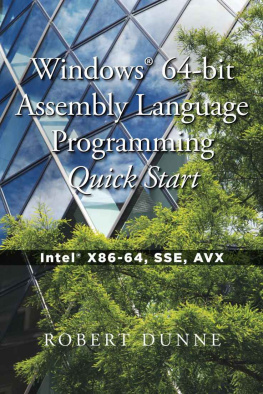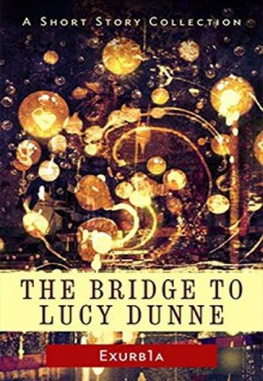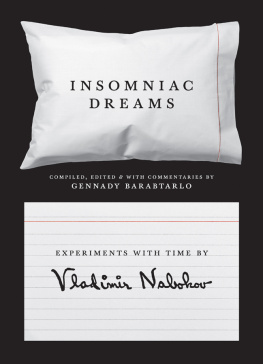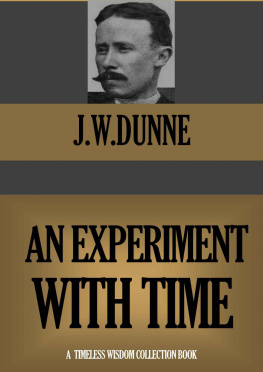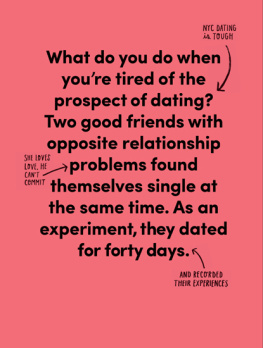Dunne - An Experiment With Time
Here you can read online Dunne - An Experiment With Time full text of the book (entire story) in english for free. Download pdf and epub, get meaning, cover and reviews about this ebook. City: San Francisco, year: 2016, publisher: Pickle Partners Publishing;Hauraki Publishing, genre: Detective and thriller. Description of the work, (preface) as well as reviews are available. Best literature library LitArk.com created for fans of good reading and offers a wide selection of genres:
Romance novel
Science fiction
Adventure
Detective
Science
History
Home and family
Prose
Art
Politics
Computer
Non-fiction
Religion
Business
Children
Humor
Choose a favorite category and find really read worthwhile books. Enjoy immersion in the world of imagination, feel the emotions of the characters or learn something new for yourself, make an fascinating discovery.
- Book:An Experiment With Time
- Author:
- Publisher:Pickle Partners Publishing;Hauraki Publishing
- Genre:
- Year:2016
- City:San Francisco
- Rating:4 / 5
- Favourites:Add to favourites
- Your mark:
- 80
- 1
- 2
- 3
- 4
- 5
An Experiment With Time: summary, description and annotation
We offer to read an annotation, description, summary or preface (depends on what the author of the book "An Experiment With Time" wrote himself). If you haven't found the necessary information about the book — write in the comments, we will try to find it.
An Experiment With Time — read online for free the complete book (whole text) full work
Below is the text of the book, divided by pages. System saving the place of the last page read, allows you to conveniently read the book "An Experiment With Time" online for free, without having to search again every time where you left off. Put a bookmark, and you can go to the page where you finished reading at any time.
Font size:
Interval:
Bookmark:

This edition is published by PICKLE PARTNERS PUBLISHINGwww.pp-publishing.com
To join our mailing list for new titles or for issues with our bookspicklepublishing@gmail.com
Or on Facebook
Text originally published in 1927 under the same title.
Pickle Partners Publishing 2016, all rights reserved. No part of this publication may be reproduced, stored in a retrieval system or transmitted by any means, electrical, mechanical or otherwise without the written permission of the copyright holder.
Publishers Note
Although in most cases we have retained the Authors original spelling and grammar to authentically reproduce the work of the Author and the original intent of such material, some additional notes and clarifications have been added for the modern readers benefit.
We have also made every effort to include all maps and illustrations of the original edition the limitations of formatting do not allow of including larger maps, we will upload as many of these maps as possible.
AN EXPERIMENT WITH TIME
BY
J. W. DUNNE
Contents
An Experiment with Time was published first in March of 1927. It has passed through two editions and a reprint, without any substantial alteration. For this (third) edition I have thought it advisable to overhaul the book from beginning to end. I have inserted about eighty pages of new matter (including a new chapter, XI a ), and I have done my best to simplify still further the arguments in the analytical chapters. The most important addition, however, is Appendix III, which deals with a new method of assessing the value of the evidence obtained. This amounts, in effect, to a new experiment of very great potency.
The general reader will find that the book demands from him no previous knowledge of science, mathematics, philosophy, or psychology. It is considerably easier to understand than are, say, the rules of Contract Bridge. The exception is the remainder of this Introduction. That has been written entirely for specialists, and is in no way a sample of what is to come.
Multidimensional worlds of the kind beloved by mystics, and dating back to the days of the Indian philosopher Patajali, have never appealed to me. To introduce a new dimension as a mere hypothesis ( i.e., without logical compulsion) is the most extravagant proceeding possible. It could be justified only by the necessity of explaining some insistent fact which would appear, on any other hypothesis, miraculous. And a new and still more marvellous miracle would need to be discovered before we could venture to consider the possibility of yet another dimension. Even then the major difficulty would remain to be overcome. For why should the, say, five-dimensional observer of a five-dimensional world perceive that world as extended in only three dimensions?
The universe which develops as a consequence of what is known to philosophers as the Infinite Regress is entirely free from the foregoing objections.
This Infinite Regress, I may explain to the uninitiated, is a curious logical development which appears immediately one begins to study self-consciousness or will or time. A self-conscious person is one who knows that he knows; a wilier is one who, after all the motives which determine choice have been taken into account, can choose between those motives ; and time isbut this book is about that.
The usual philosophic method of dealing with any regress is to dismiss it, with the utmost promptitude, as something full of contradictions and obscurities. Now, at the outset of my own perplexing experiences, I supposed that this attitude was justified. But the glaring regress in the notion of time was a thing which had intrigued me since I was a child of nine (I had asked my nurse about it). The problem had recurred to me at intervals as I grew older. I had troubles enough without this one, and I wanted it out of the way. Finally, I set to work to discover what were the contradictions and where were the obscurities. I spent two years hunting for the supposed fallacy. None, I think, can have subjected this regress to a fiercer, more varied or more persistent attack. These assaults, to my great surprise, failed. Slowly and reluctantly I acknowledged defeat. And, at the end, I found myself confronted with the astonishing facts that the regressions of consciousness, will and time were perfectly logical, perfectly valid, and the true foundations of all epistemology.
It was not, however, until years later that it dawned upon me wherein lay the full significance of any regress. A regress is merely a mathematical series. And that is merely the expression of some relation. But the relation thus expressed is one which does not become apparent until one has studied the second term of the series concerned. Now, the second term of the regress of time brings to light relations of considerable importance to mankind. It is the existence of these relations that the regress asserts. But the information thus disguised is entirely lost if we confine our study to the opening term alone. Yet that is what mankind has been doing.
As soon as I realized this I sat down and wrote the book. It contains the first analysis of the Time Regress ever completed. Incidentally, it contains the first scientific argument for human immortality. This, I may say, was entirely unexpected. Indeed, for a large part of the time that I was working, I believed that I was taking away mans last hope of survival in a greater world.
J. W. DUNNE
March 15 th , 1934.
It has been rather surprising to discover how many persons there are who, while willing to concede that we habitually observe events before they occur, suppose that such prevision may be treated as a minor logical difficulty, to be met by some trifling readjustment in one or another of our sciences or by the addition of a dash of transcendentalism to our metaphysics. It may well be emphasized that no tinkering or doctoring of that kind could avail in the smallest degree. If prevision be a fact, it is a fact which destroys absolutely the entire basis of all our past opinions of the universe. Bear in mind, for example, that the foreseen event may be avoided. What, then, is its structure?
I would suggest that we are lucky, on the whole, to be able to replace our vanished foundations by a system so simple as the serialism described in this book.
Anyone who hopes to discover an explanation even simpler would be well advised to examine his own statement of the difficulty to be facedviz., that we observe events before they occur. Let him ask himself to what time-order does that word before refer. Certainly not to the primary time-order in which the occurring events are arranged! He may see then that his statement (and every expression of his problem must bear that same general form) is in itself a direct assertion that Time is serial.
If Time be serial, the universe as described in terms of Time must be serial, and the descriptions, to be accurate, must be similarly serialas suggested in Chapter XXV. If that be the case, the sooner we begin to recast physics and psychology on such lines, the sooner may we hope to reckon with our present discontinuities and set out upon a new and sounder pathway to knowledge.
J. W. DUNNE
It might, perhaps, be advisable to say heresince the reader may have been glancing aheadthat this is not a book about occultism, and not a book about what is called psycho-analysis.
It is merely the account of an extremely cautious reconnaissance in a rather novel directionan account presented in the customary form of a narrative of the actual proceedings concerned, coupled with a statement of the theoretical considerations believed to be involvedand the dramatic, seemingly bizarre character of the early part of the story need occasion the reader no misgivings. He will readily understand that the task which had to be accomplished at that stage was the isolating (to borrow a term from the chemists) of a single, basic fact from an accumulation of misleading material. Any account of any such process of separation must contain, of course, some description of the stuff from which the separation was effected. And such stuff very often is, and in this case very largely wasrubbish.
Next pageFont size:
Interval:
Bookmark:
Similar books «An Experiment With Time»
Look at similar books to An Experiment With Time. We have selected literature similar in name and meaning in the hope of providing readers with more options to find new, interesting, not yet read works.
Discussion, reviews of the book An Experiment With Time and just readers' own opinions. Leave your comments, write what you think about the work, its meaning or the main characters. Specify what exactly you liked and what you didn't like, and why you think so.

